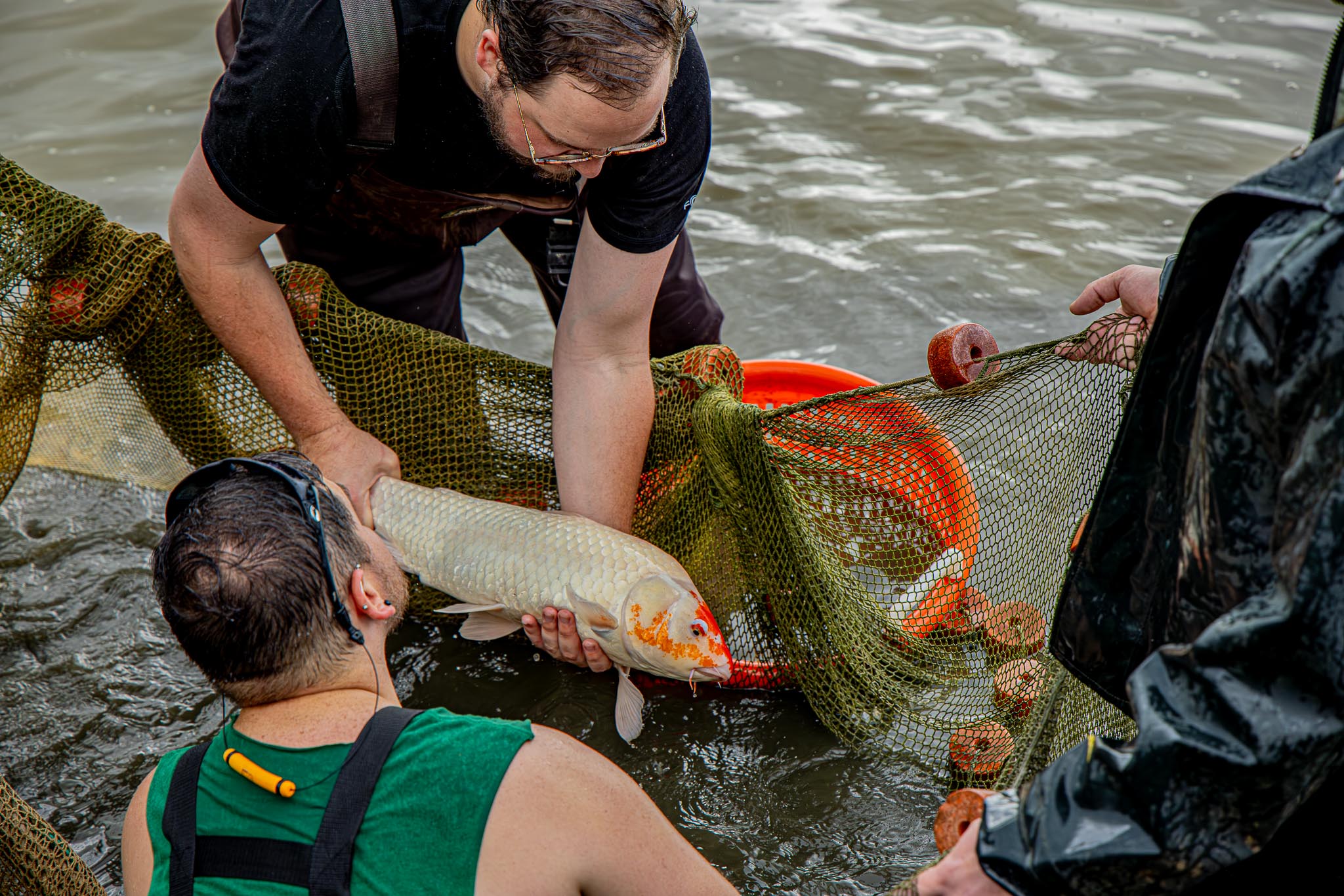Aquaculture Minor

History
Kentucky State University began offering an undergraduate Minor in Aquaculture in 1992 within the School of Aquaculture & Aquatic Science. The Minor in Aquaculture can be earned with completion of 19 credit hours.
No other university in the Commonwealth offers an aquaculture curriculum.
In 1998, the Council on Post Secondary Education approved KSU’s offering of a Master of Science in Aquaculture and Aquatic Sciences beginning the fall semester of 1999. KSU’s Aquaculture Program has been selected as Kentucky State University’s Program of Distinction.
Courses
AQU 101: Intro to Aquatic Science
- Credits: 3
- Prerequisite: None
- Introduction to Aquatic Science is a multidisciplinary online course in which students examine marine and freshwater aquatic systems, their properties, the diversity of aquatic life, and associated ecological principals. Students will develop awareness of the scientific method, issues facing aquatic systems, and the diversity of disciplines associated with careers in aquatic science.
AQU 201: Fisheries for an Educated Consumer
- Credits: 3
- Prerequisite: None
- This course is intended as an elective for undergraduate students who have no training in fisheries, but wish to become educated consumers. It will provide a general understanding of fisheries for students unfamiliar with the discipline and will highlight the importance of aquaculture. STEM and sustainability concepts will be combined with the multi-disciplinary nature of fisheries as an applied science. The course will integrate current events and scientific principles associated with fisheries and agriculture to enhance enduring life skills.
AQU 322: Principles of Aquaculture
- Credits: 3
- Introduction to principles underlying Aquatic productivity and management with a survey of domestic and foreign cultures of fish and Aquatic vertebrates.
AQU 407: Fish Genetics
- Credits: 3
- Prerequisite: Consent of instructor.
- An overview of fish genetics including basic principles and methods of selective breeding in aquaculture.
AQU 411: Fish Diseases
- Credits: 3
- Prerequisite: Consent of instructor.
- 3 hours of lecture, 3 hours of laboratory per week.
- Clinical diagnosis of fish diseases; necropsy of diseased fish; and formulation of corrective measures for disease control.
AQU 412: Fish Morphology & Physiology
- Credits: 4
- Prerequisite: Consent of instructor.
- 3 hours of lecture, 2 hours of laboratory per week.
- An overview of fish morphology and physiology with emphasis on comparative and adaptive aspects among Osteichthyes (true bony fish).
AQU 421: Fish Nutrition
- Credits: 3
- Prerequisite: Consent of instructor.
- 3 hours of lecture per week.
- Fundamental and applied aspects of fish nutrition including nutrient requirements, nutrient chemistry, ration formulation, and practical feeding will be taught.
AQU 427: Fish Reproduction & Spawning Techniques
- Credits: 3
- 3 hours of lecture, 2 hours of laboratory per week.
- An overview of basic biology of fish reproduction and techniques of artificial spawning for common aquaculture species.
AQU 451: Survey of Production Methods
- Credits: 3
- Prerequisite: AQU 422 or consent of instructor.
- 3 hours of lecture per week.
- An overview of alternative production methods including ponds, cages, net?pens, raceways, and recirculating systems with application to suitable species.
AQU 452: Aquaponics
- Credits: 3
- Prerequisite: None
- This course will provide an overview of principles and practices of aquaponic production. Students will be introduced to a wide range of topics including fish and plants management, system design, water quality, nutrient dynamics, food safety, and others. The class covers proven technology, current practices, and introduced students to future directions and research in the growing field of aquaponics.
AQU 460: Water Quality Management
- Credits: 3
- Prerequisite: Consent of instructor.
- 3 hours of lecture per week.
- A survey of theory and practice into the understanding and manipulation of the biological, chemical, and physical aspects of water quality in aquaculture production.
AQU 470: Recirculating Aquaculture
- Credits: 3
- Prerequisite: None
- A broad survey of the various devices, comprehensive systems, and techniques that are used to facilitate water reuse in aquaculture systems. The course will examine water quality control mechanisms, engineering and physics complexities of systems and components, biological and ecological considerations, various crops that can be produced, and the economics of recirculating aquaculture.
AQU 491: Internship: Aquaculture
- Credits: 1-4
- Prerequisite: Consent of advisor. Intensive experience involving practical on-site participation working at an aquaculture facility (University, state, or private).